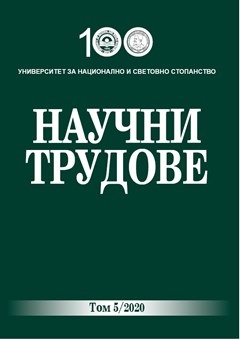Бежанската криза в ЕС: икономическо бреме или възможност
EU Migrant Crisis: Economic Burden or Opportunity?
Author(s): Atanas PavlovSubject(s): Politics / Political Sciences, Politics, Social Sciences, Sociology, Migration Studies, EU-Approach / EU-Accession / EU-Development
Published by: Университет за национално и световно стопанство (УНСС)
Keywords: migration; EU refugee crisis; economic burden; economic opportunity; aging population
Summary/Abstract: While welcoming refugees increases the public spending of European countries in the short term, it also increases aggregate demand in the economies, which increases the GDP of nations, due to the increased demand for domestic goods and services. In the long term, as migrants are integrated into the market, the fiscal system begins to receive financial benefits as these migrants begin to contribute to the social system of the state. Acceptance of refugees is particularly important for European nations struggling with a declining workforce because of aging population and declining birth rate - so as Bulgaria. While skilled refugees can contribute to healthcare system, engineering and business, unskilled refugees could work to care for the elderly as well as low-skilled labor. Therefore, the refugee crisis could serve as a key tool for many European nations as it enables them to welcome new members of their workforce and ensure continuous economic growth in the future.
Journal: Научни трудове на УНСС
- Issue Year: 5/2020
- Issue No: 5
- Page Range: 61-75
- Page Count: 15
- Language: Bulgarian

